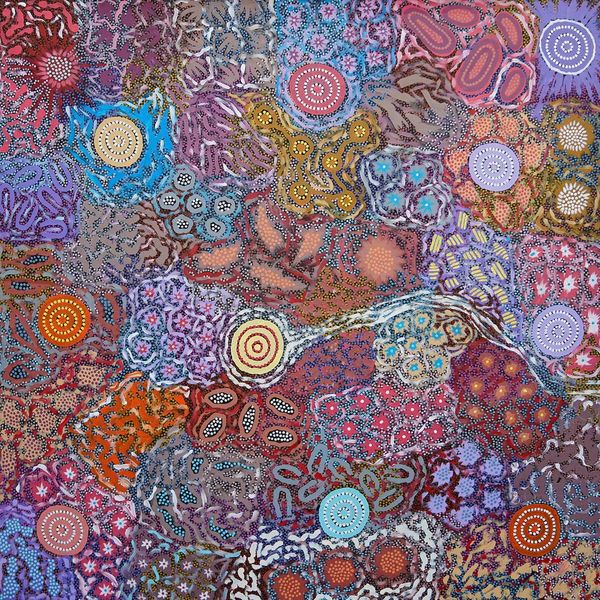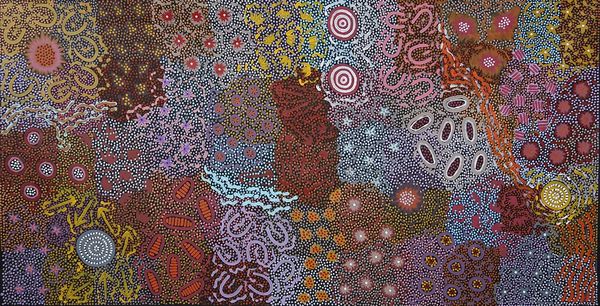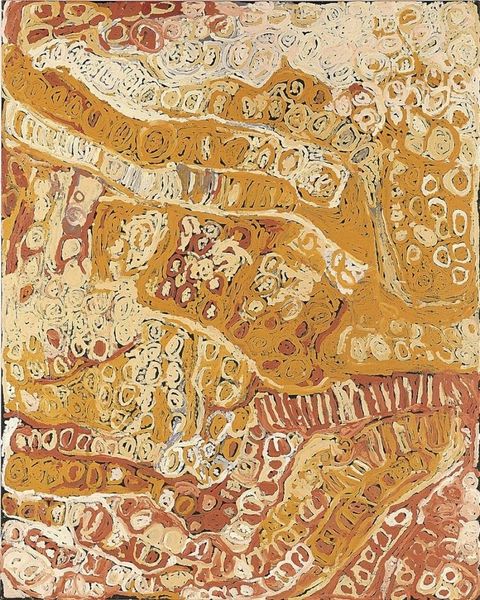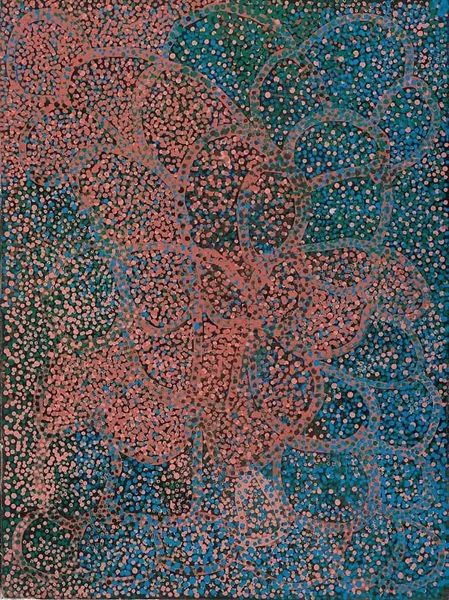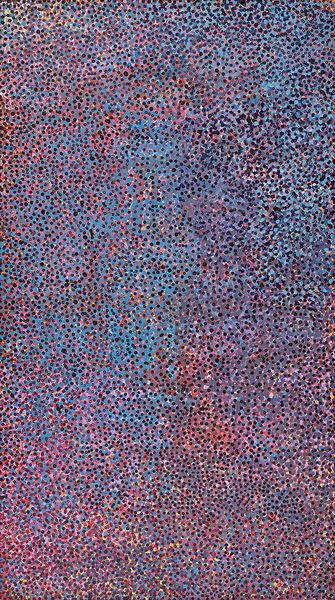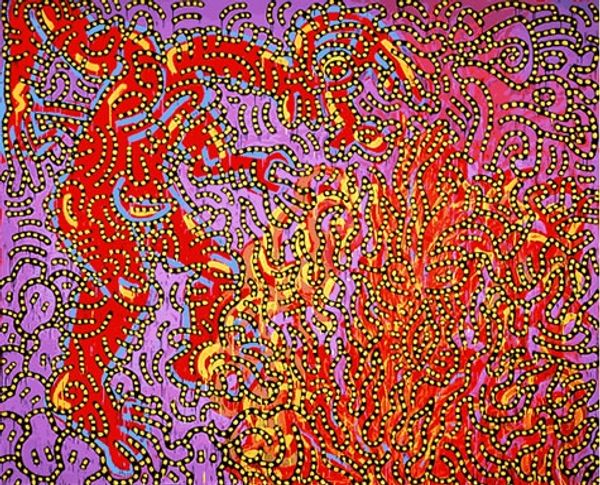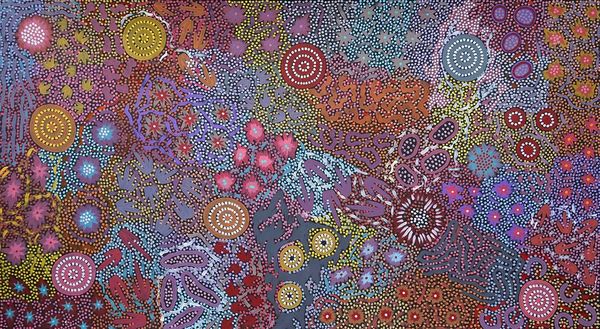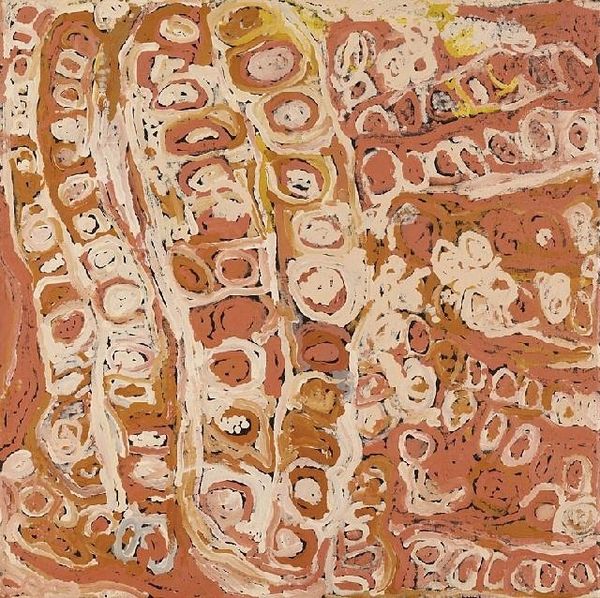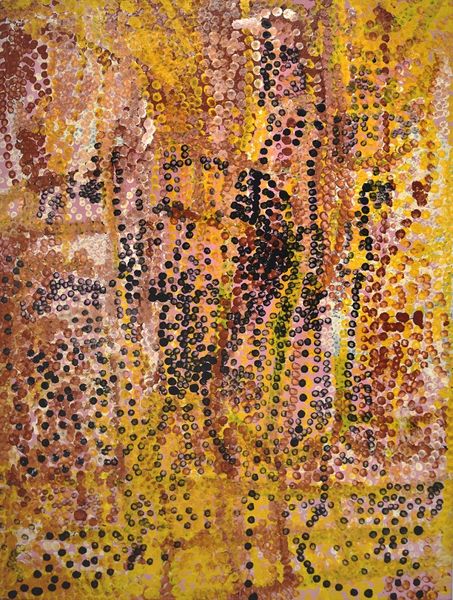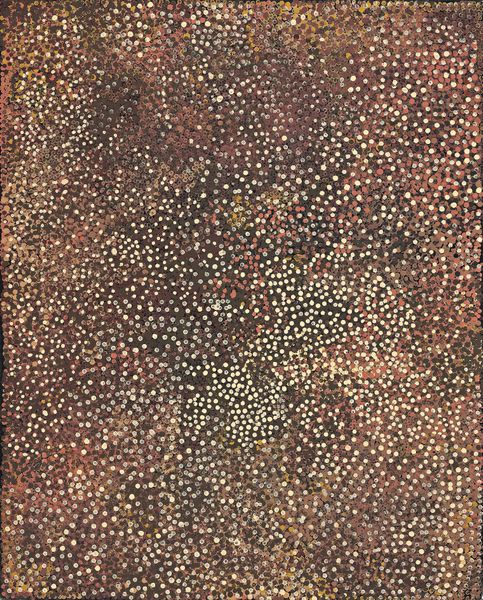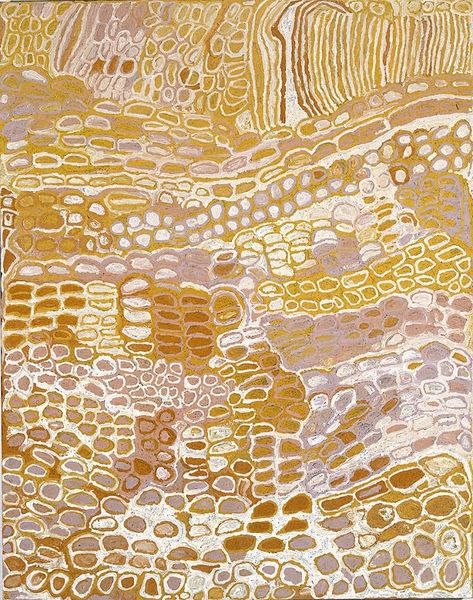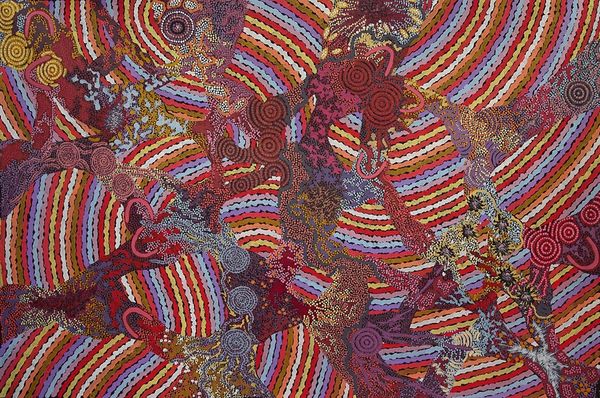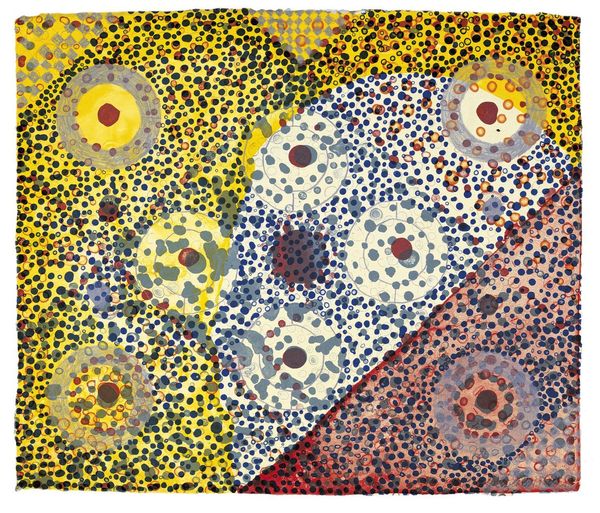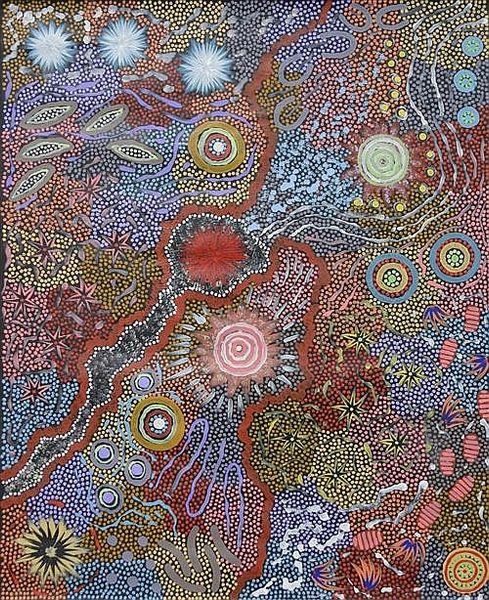
painting
#
natural stone pattern
#
naturalistic pattern
#
contemporary
#
organic
#
wave pattern
#
painting
#
geometric pattern
#
abstract pattern
#
organic pattern
#
flower pattern
#
abstraction
#
intricate pattern
#
line
#
layered pattern
#
pattern in nature
Copyright: Emily Kame Kngwarreye,Fair Use
Editor: This is Emily Kame Kngwarreye’s "Anatye: Bush Potato," painted in 1989 using acrylics. I'm struck by the sheer density of the dot work. It almost vibrates! How would you interpret this work? Curator: Well, consider the material's origins and how Kngwarreye engaged with them. Acrylic paint, a relatively modern substance, was used here by an Indigenous artist. Doesn’t that intersection of modernity and tradition pique your interest? How does it sit with the subject matter of the bush potato, a staple food? Editor: I hadn't really thought about acrylic *itself* having a history, let alone its use in indigenous artmaking. Curator: Exactly! This is more than just a pretty pattern. What about the canvas as a manufactured surface? Think about its availability, cost, and distribution within the art market. How does that frame Kngwarreye’s labour in relation to Western consumption? Editor: So you're saying the painting's value isn't just in the image but in understanding the labor, the canvas production, the acrylic's industrial origin? Curator: Precisely. The dots might represent the potato, but they also signify labor. Thousands upon thousands of individually applied marks. Look closely, and you see slight variations in pressure and consistency. Each a small record of the artist's hand and its movement. Editor: This completely reframes my view. It’s not just a representation; it’s about the making of. I see a commentary on materiality now. Curator: Yes, we must be critical of what materials and means are being used and why. It changes how we interpret the whole piece.
Comments
No comments
Be the first to comment and join the conversation on the ultimate creative platform.
